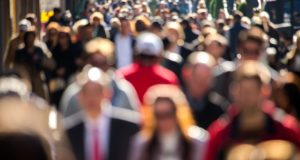
The brain is the most vital organ of the human body. It has billions of interconnected neurons and has varied functions. The brain is the center of all mental activities and controls physical activities to a very large extent. The intelligence of an individual is considered to be dependent on the quality of his brain functions. Since time immemorial the human being has been attempting to enhance the functional capacity of the brain. Parents are generally very concerned about the IQ of their offspring and one of the great desires to do something arises when a child is mentally retarded. In such cases they are prepared to try any remedy prescribed by a doctor, vaidya, hakim or even a sage who is supposedly full of wisdom.
All sorts of drugs have been tried to increase the functional capacity of the brain. A number of plant products, minerals, and even animal organs have been ascribed for this purpose. In Ayurveda, Brahmi preparations have been employed for this purpose and a number of Ayurvedic and Unani manufacturers of formulations have come out with several so-called brain tonics, some of which have been shown to bring temporary benefits, and others none when experimentally tested.
The drugs currently in use can be divided into two groups: One, those stimulating the central nervous system; two, those which increase cerebral activity. Those stimulating the central nervous system can be further subdivided into two types: 1) stimulants which act on the Central Nervous System and thus stimulate mental activity; and 2) stimulants of mental as well as physical activity.
Drugs that Stimulate Mental Activity
Caffeine
This is found in tea, coffee, and cocoa. It stimulates the central nervous system, causing elevation of mood and increased alertness. It lessens the feeling of tiredness and fatigue. With limited doses, the ability to concentrate increases and the work output enhanced. Caffeine causes constriction of cerebral blood vessels, which may be helpful in headache and migraine relief.
The caffeine content of an average cup of tea is 30 to 45 mg, coffee, 80 to 100 mg, and a coladrink bottle, 30 mg. Caffeine is available in various tonics, medicines for headache and migraine, pain relievers and antihistaminics used in the treatment of the common cold.
Dosage: The minimum dose of caffeine necessary to stimulate ranges between 100 mg and 300 mg. However, if the daily intake of tea or coffee is very high, one may need a higher dose for the stimulant effect. Smokers also need more caffeine for the same effect than non-smokers. Several pain-killer tablets in the market contain very low doses of caffeine (less than 30 mg) which serve no useful purpose.
Adverse Effects: The adverse effects of caffeine vary from person to person, but in general, a dose of 1 g or more may cause restlessness, irritability, excitement, insomnia, trembling, palpitation, fast breathing and increased urination. Still higher doses may cause ringing in the ears, flashes of light in front of the eyes, and mental confusion. It also causes irritation in the stomach and increases the production of acid.
Precautions
A strong cup of tea or coffee should not ordinarily be taken late in the evening or at night, since in some persons it causes disturbance of sleep or insomnia. Tea and coffee without caffeine is available and is popular for night consumption.
If suffering from hyperacidity or a peptic ulcer, the intake of tea or coffee should be restricted. Additional milk maybe added or these drinks taken with meals.
Many people can tolerate caffeine and develop a psychological dependence on it, but this is not of any serious consequence.
Drugs that Stimulate Both Mental and Physical Activity
Amphetamine (Dexedrine)
This brings about an increase in mental as well as physical activity. It makes a person ‘high’, and for this reason has been extensively abused by youngsters and is known by nicknames like ‘Pep Pills’ and ‘Speed’. Students take it at the time of examinations to keep awake for long hours. However, it may cause a state of confusion rather than allowing for longer study hours, and thus, may do more harm than good.
Amphetamine has been used to treat patients of narcolepsy (who fall asleep during the day for short periods), hyperkinetic syndrome (overactive children), and bedwetting. Amphetamine has been extensively misused in competitive sports to improve performance. Participants in national and international sports are now subject to urine examination for the presence of this drug and use of the drug disqualifies them from competitions.
Dosage: Amphetamine is administered orally in a dose of 5 to 10 mg, three times a day, last dose to be taken before 4-5 pm.
Adverse Effects: The adverse effects of amphetamine include restlessness, dizziness, trembling, hyperactivity, tenseness, irritability, weakness, insomnia, fever, euphoria, confusion, increased libido (sexual desire), anxiety, deliriousness, and hallucinations. It may even cause suicidal or homicidal tendencies in mentally ill patients. Fatigue and depression follow stimulation. Other adverse effects are palpitation, precipitation of anginal pain, dryness of the mouth, nausea, vomiting, diarrhoea, and abdominal cramps.

Source by Robin Brain
 Vitamin Agent The Health & Naturalistic Source
Vitamin Agent The Health & Naturalistic Source



